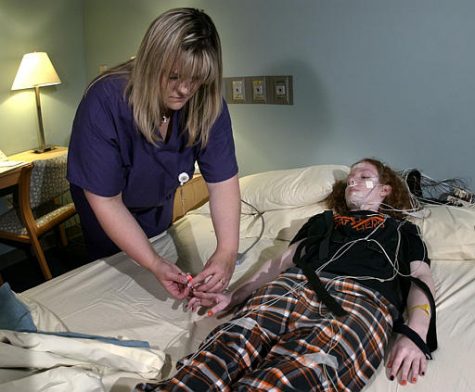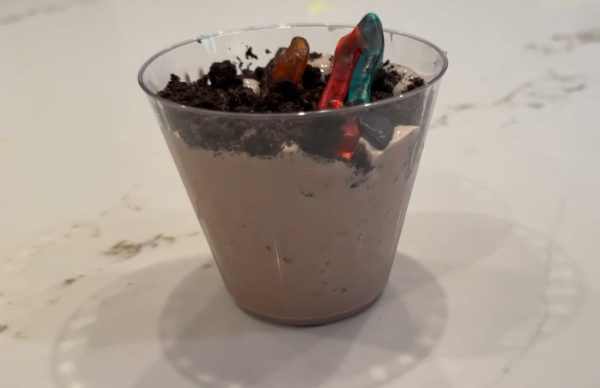Sleep Deprivation: Epidemic Sweeping this Generation
January 23, 2017
With hazy tired eyes, students shuffle through the busy halls on their same daily routine all wanting one thing: sleep.
That feeling is commonly known as sleep deprivation, a word defined by Wikipedia as “the condition of not having enough sleep; it can either be chronic or acute.”
It is the disease that, according to sources such as Medical News Today, is an epidemic of this generation of teenagers. While it may not seem serious to some, Science News states the condition can lead to many more diseases and risks.
The Sleep Foundation suggests that teenagers are the most likely to have this condition due to irregular sleep hours caused by getting up early on weekdays and sleeping in very late on weekends. It is those irregular patterns that can cause sleep deprivation to occur. According to Health Daily News, more than 90 percent of American high school students are chronically sleep deprived.
Additionally, The Sleep Foundation suggests the average teenager needs about eight to ten hours of sleep each night. However, one of their studies found that only 15 percent of teens reported to sleep for the amount of time encouraged.
A study found by Science News reported similar unsuccessful results. Thirty percent of teens reported seven hours of sleep, 23 percent slumbering six hours, 10 percent catching a mere five hours of sleep, and the remaining teens claimed to sleep for no more than four hours on most weeknights.
While sleep deprivation can begin simply as pure tiredness, it can just as easily evolve into something more. Medical News Today stated that just being tired and run down can increase the chance of contracting a disease. Some other possible effects they reported were aching muscles, confusion or memory loss, depression, obesity, and a lowered perception of quality of life.

Polysomnographic specialist Kyndra Vanderheyden, left, connects sensors to Cara Horton, 16, as Horton prepares to spend the night at the Sleep Disorders Center at St. Luke’s Hospital in Kansas City, Mo., Sunday, Oct. 3, 2004. Horton is among a growing number of teens suffering from insomnia or other sleep disorders. (AP Photo/Charlie Riedel)
Besides the irregular sleep patterns, according to Child Mind, technology is another substantial factor contributing to sleep deprived teenagers. Doctor Max van Gilder, a pediatrician from Manhattan, explained that the light emitted from a phone, known as blue light, prevents teens from feeling tired.
“The receptors in your eyes send a signal to the brain which suppresses the production of melatonin and keeps kids from feeling tired. And adolescents are low on melatonin and start producing it later to begin with,” Gilder said.
Additionally, Child Mind also suggested that another major cause of sleep deprivation is the overhaul of homework placed on teenage students, along with their numerous extra-curricular activities.
According to Doctor Craig Canapari, a survey concluded that about 15 percent of junior and senior high school students had over two hours of homework per night. Fifteen percent of parents were also concerned about the excessive work amounts.
The overhaul of homework on top of students’ activities results in a majority of high school students reporting to school overtired, resulting in losing some ability to retain and remember information. Inquiry Journal reported that 82 percent of students woke up tired and unrefreshed, and half of which also reported having trouble concentrating in school.
With all of the various ways teenagers become sleep deprived, there are also many ways that sleep deprivation can be cured. The Sleep Foundation recommends teenagers get eight to ten hours of sleep each night to ensure feeling refreshed at the beginning of each day.
Also, the Sleep Foundation recommends to keep bedrooms as a “safe haven.” This means keeping the bedroom quiet, cool, and dark, which allows for less distraction and more time focusing on sleep. However, at the same time, it is important for your room to let in sunlight in the morning to help your body wake up. Lastly, Medical News Today encourages people to avoid eating two to three hours before bed, avoid caffeine at night, and engage in regular exercise routines.
Medical News Today concluded with, “There is no questioning the importance of restorative sleep, and a certain amount of attention is necessary to both manage and prevent sleep deprivation.”



